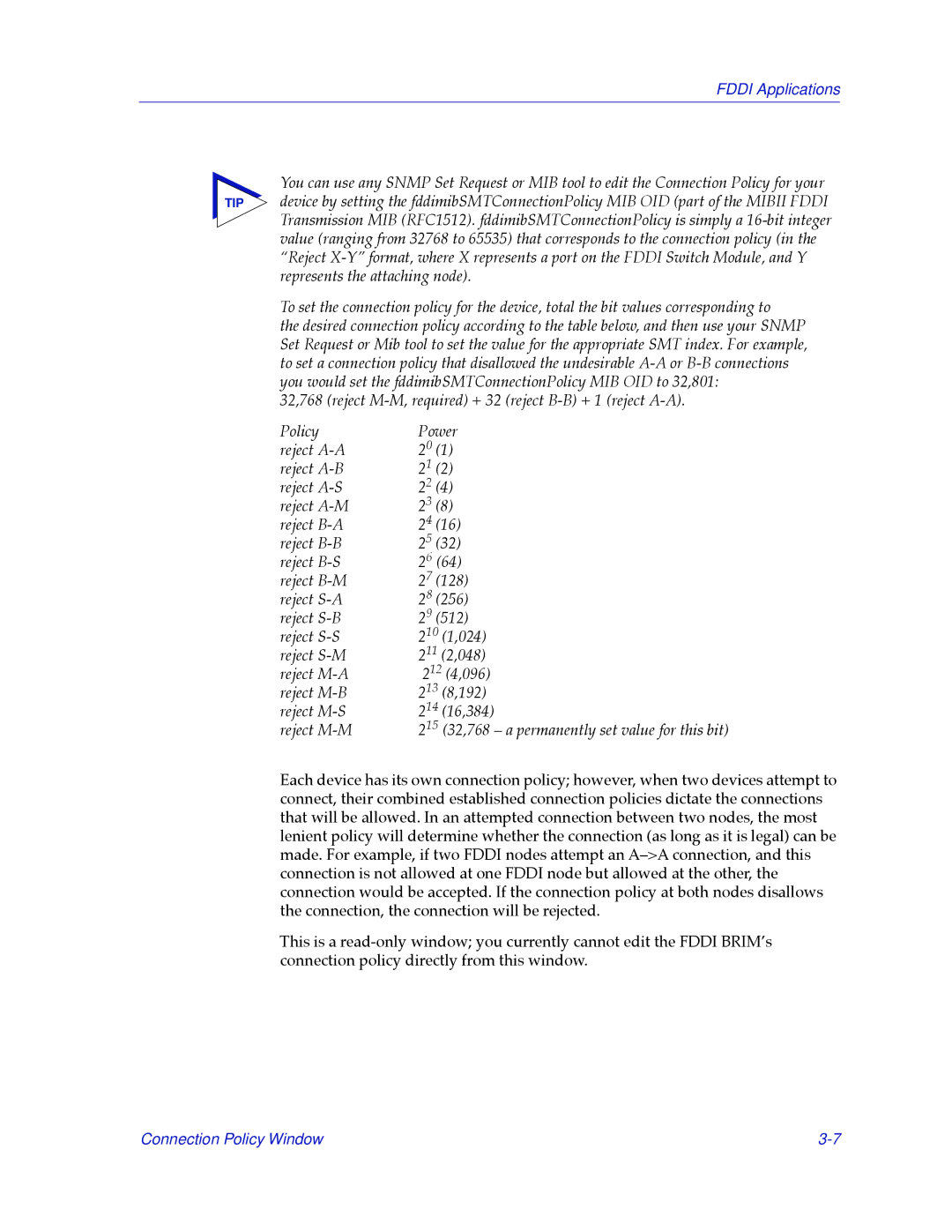
FDDI Applications
You can use any SNMP Set Request or MIB tool to edit the Connection Policy for your
TIP device by setting the fddimibSMTConnectionPolicy MIB OID (part of the MIBII FDDI Transmission MIB (RFC1512). fddimibSMTConnectionPolicy is simply a
To set the connection policy for the device, total the bit values corresponding to
the desired connection policy according to the table below, and then use your SNMP Set Request or Mib tool to set the value for the appropriate SMT index. For example, to set a connection policy that disallowed the undesirable
32,768 (reject
Policy | Power | |
reject | 20 | (1) |
reject | 21 | (2) |
reject | 22 | (4) |
reject | 23 | (8) |
reject | 24 | (16) |
reject | 25 | (32) |
reject | 26 (64) | |
reject | 27 | (128) |
reject | 28 | (256) |
reject | 29 | (512) |
reject | 210 (1,024) | |
reject | 211 (2,048) | |
reject | 212 (4,096) | |
reject | 213 (8,192) | |
reject | 214 (16,384) | |
reject | 215 (32,768 Ð a permanently set value for this bit) | |
Each device has its own connection policy; however, when two devices attempt to connect, their combined established connection policies dictate the connections that will be allowed. In an attempted connection between two nodes, the most lenient policy will determine whether the connection (as long as it is legal) can be made. For example, if two FDDI nodes attempt an AÐ>A connection, and this connection is not allowed at one FDDI node but allowed at the other, the connection would be accepted. If the connection policy at both nodes disallows the connection, the connection will be rejected.
This is a
Connection Policy Window |
